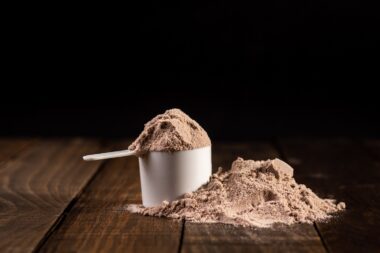As new parents, one can’t help but admire their Baby’s delicate features. Parents want their babies to be happy and comfortable all of the time. However, the baby’s sensitive skin may get in the way.
If one is wondering how to identify sensitive skin and what baby sensitive skin products to use to care for it, they have come to the right place.
How to know if the baby has sensitive skin?
While most parents are concerned about their Baby’s sensitive skin, they can take comfort in that it is common for babies to have sensitive skin.
During the first few years of Baby’s life, a layer of water and oil will form on their skin. This is the hydrolipid layer, and it protects the skin by acting as a barrier against toxins and preventing moisture loss.
Skin tightness, prickling, tingling, redness, and dryness are common symptoms in babies with sensitive skin.
However, using harsh skincare products containing chemicals, bathing in hot water, and failing to adequately moisturize the skin can weaken the hydrolipid barrier and make the baby’s skin sensitive.
Sensitive skin symptoms include:
- After coming into contact with a particular product, the baby develops dry skin and rashes
- A skin reaction following a soap bath
- A skin reaction caused by using a lotion containing artificial fragrances
- Skin changes caused by detergents or dyes after dressing
How to help a baby with sensitive skin?
Once determined that the baby has sensitive skin, one must avoid exposing them to products containing harsh chemicals, toxins, and artificial fragrances.
These can irritate the skin and cause excessive dryness, redness, and rashes. For the first few years of the baby’s life, it’s best to stick to natural baby products.
Eliminating triggers and using anti-irritation products can help keep the baby’s sensitive skin healthy. It can also alleviate irritation-related discomfort. Here are some pointers to consider when caring for a baby’s sensitive skin:
Massage the infant
Massage the baby’s skin with natural oils to improve blood circulation and deeply nourish the skin. Choose a natural baby massage oil-free of mineral oil and artificial fragrances and contains natural oils that moisturize and soothe the skin, such as Organic Chamomile Oil, Organic Avocado Oil, and Organic Jojoba oil.
Wash baby’s skin
While it is essential to keep the house clean and the rooms where the baby spends most of their time free of dust and dirt, it is equally important to keep the baby’s skin clean. Dust and dirt, combined with sweat, can irritate the baby’s skin.
Use a gentle, tear-free baby shampoo free of harsh ingredients like Sulfates and artificial fragrances on the baby’s hair and scalp.
Keeping baby’s skin moisturized
Moisturizing the baby’s skin regularly is one of the best ways to keep it soft and protected. Use a natural baby lotion immediately after bathing to lock in moisture and keep the baby’s skin from drying out.
Look after the baby’s diaper area
The baby’s diaper area is frequently exposed to moisture and receives little air time. As a result, it is more prone to rashes and irritation.
Keep the child’s bottom as dry as possible, and using a baby rash cream containing ingredients like Zinc Oxide can help prevent irritation and rashes.
Also read: How To Reset Your Life Amid Postpartum Blues
Keep baby’s bath time to a minimum
Bath time contains several triggers that can cause a baby’s skin to become uncomfortable and irritated. The water temperature, the number of times one bathes the baby, the type of baby wash one uses, and how to dry the baby can impact the baby’s skin health.
Before bathing the baby, always check the temperature of the water. Bathe in lukewarm water, which strips the skin of moisture. Instead, use baby-sensitive skin products like a hypoallergenic, mild baby wash with cleansers.
After bathing the baby, pat their skin dry with a soft towel. Avoid rubbing the baby’s skin because this can cause friction and discomfort.
Final thoughts
A baby’s skin is far more delicate and thin than the parent’s. As a result, the baby’s skin is susceptible to dryness and sensitivity. These suggestions will undoubtedly help with the baby’s sensitive skin.

Hello reader, I’m Abhishek Kumar Shankhwar, a mental health and wellness enthusiast, and a digital marketing specialist by profession. As a passionate health and wellness guide, I’m driven by a purpose to inform, inspire, and positively impact lives through meaningful content. When I’m not immersed in crafting articles, you’ll likely find me exploring human psychology, spirituality, or the mysteries of the universe, experimenting in the kitchen, or reflecting on life’s deeper questions. I’m also part of the team at Dignitas Digital, an award-winning digital agency based in Philadelphia, USA, where we drive brand growth through innovative marketing strategies and tech-forward solutions. Connect with me on LinkedIn to explore potential synergies.





































